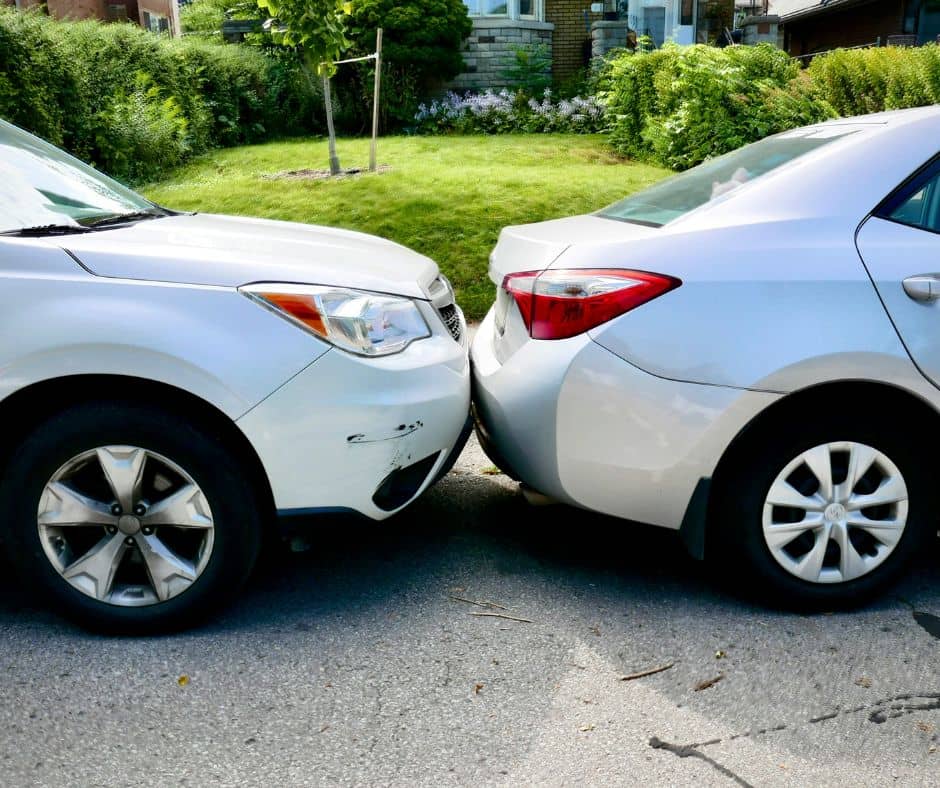I Committed a Hit-and-Run. How Long Will It Take for the Police to Find Me?

The seconds after a hit-and-run accident can feel like an eternity as panic and fear set in. You know, leaving the scene was dead wrong, but in that moment, fleeing just seemed like the only option. However, hitting the road doesn’t make the incident disappear into thin air.
Authorities have procedures and resources to investigate and identify hit-and-run offenders – it’s just a matter of how long that process takes in your specific case.
From witness statements to physical evidence and surveillance footage, law enforcement likely has leads already working to track you down. The sooner you get ahead of the situation and take action, the better you may be able to mitigate potential criminal charges and penalties down the line.
What Circumstances Affect the Length of a Hit and Run Investigation
Several factors influence the duration of a hit-and-run probe.
Evidence and Witnesses
The availability of evidence and witness testimony can significantly impact the speed of an investigation. If there are surveillance cameras in the area or witnesses who can provide detailed descriptions of the vehicle, license plate, and driver, the police can identify you more quickly.
Severity of the Accident
The accident’s severity can also affect the investigation’s timeline. If the hit-and-run resulted in serious injuries or fatalities, the police may allocate more resources to the case and prioritize it over accidents with only property damage.
Police Department Resources
The workload and resources of the local police department can affect how quickly they can investigate the hit-and-run. If the department is understaffed or dealing with a high volume of cases, it may take longer to discover who and where you are.
Suspect Cooperation
When the police contact you, your cooperation can impact the investigation’s duration. If you turn yourself in or the police easily locate you, the case moves quickly. However, evading law enforcement will take more police resources to find you.
The Timeline of a Hit-and-Run Investigation
While every case is unique, here’s a general overview of what happens during hit-and-run investigations:
Initial Police Response
After a victim calls the police, officers arrive at the scene to collect evidence, take statements, and document the damage. This initial response typically occurs within a few hours.
Evidence Analysis
The police will analyze any available evidence, such as surveillance footage, witness statements, and physical evidence left at the scene. Depending on the case’s complexity, this process can take several days to a few weeks.
Suspect Identification
If the police identify you on the evidence, they will attempt to locate and apprehend you. The time it takes to find you can vary greatly depending on the available information and your actions.
Potential Delays
There may be delays throughout the investigation due to various factors, such as waiting for lab results, tracking down witnesses, or dealing with uncooperative suspects.
Consequences for Hit-and-Run Drivers in North Carolina
Fleeing the scene of an accident in North Carolina is a serious offense.
The consequences for hit-and-run drivers depend on the severity of the accident:
- Property Damage: If the accident only resulted in property damage, the driver may face a Class 1 misdemeanor, punishable by up to 120 days in jail and a fine.
- Injury or Death: If the accident resulted in injury or death, the driver may face a Class F felony charge, punishable by up to 59 months in prison and a fine.
The statute of limitations for which a hit-and-run victim can press charges in North Carolina is typically two years from the accident date. However, exceptions to this general rule exist in injury or death cases.
When to Consult a Criminal Defense Attorney
If the state has accused you of committing a hit-and-run offense, consult a criminal defense attorney as soon as possible.
Leaving the scene of an accident is a serious crime in North Carolina, and the consequences can be severe.
An experienced criminal defense attorney provides invaluable guidance and representation throughout the legal process.
Here are some key reasons to consult with a criminal defense attorney caught by the police after a hit-and-run.
Understanding Your Rights
A criminal defense attorney can explain your legal rights and help you understand the potential consequences of the charges against you. They also advise you to interact with law enforcement and protect your interests during the investigation.
Developing a Strong Defense Strategy
Every hit-and-run case is unique, and a skilled criminal defense attorney will analyze the evidence and circumstances surrounding your case to develop a strong defense strategy. They may challenge the evidence against you, negotiate with prosecutors, or present mitigating factors to seek to reduce or dismiss the charges.
Working the Legal System
The criminal justice system is complex and sometimes overwhelming, especially when charged with a crime for the first time. A criminal defense attorney can guide you through the process, explain your options, and represent you in court proceedings.
Minimizing the Consequences
A conviction for a hit-and-run offense can result in significant penalties, including fines, jail time, and a permanent criminal record. An experienced criminal defense attorney will work tirelessly to minimize the consequences of the charges against you and protect your future.
Do not wait to seek legal representation or leave your freedom in the hands of public defenders.
If you are under investigation for a hit-and-run offense in North Carolina, contact an experienced criminal defense attorney as soon as possible to discuss your case and explore your options.
Remember, you have the right to remain silent and the right to an attorney – exercise these rights to protect yourself and your future.
Get Trusted Legal Guidance for Your Hit-and-Run Case
At McMinn, Logan & Gray, we understand the stress and uncertainty that come with facing hit-and-run charges. We can provide legal guidance and support to get through this challenging situation.
When you consult with criminal defense lawyers, they will:
- Review the details of your case and explain the potential legal consequences you may face.
- Advise you on how to turn yourself in safely and strategically to minimize the impact on your case.
- Communicate with law enforcement and prosecutors on your behalf to gather information and negotiate for the best possible outcome.
- Develop a strong defense strategy tailored to the unique circumstances of your case, which may include challenging evidence, presenting mitigating factors, or exploring alternative sentencing options.
- Provide compassionate support and guidance throughout the legal process, helping you make informed decisions and working tirelessly to protect your future
It is important to remember that while turning yourself in and facing the consequences of your actions may seem crazy, it is the right thing to do.
Take responsibility and seek experienced legal counsel to show remorse, work towards a resolution, and begin putting this challenging experience behind you.
Contact us today for a free consultation. We’ll listen to your story and fight for the best possible outcome in your case.
